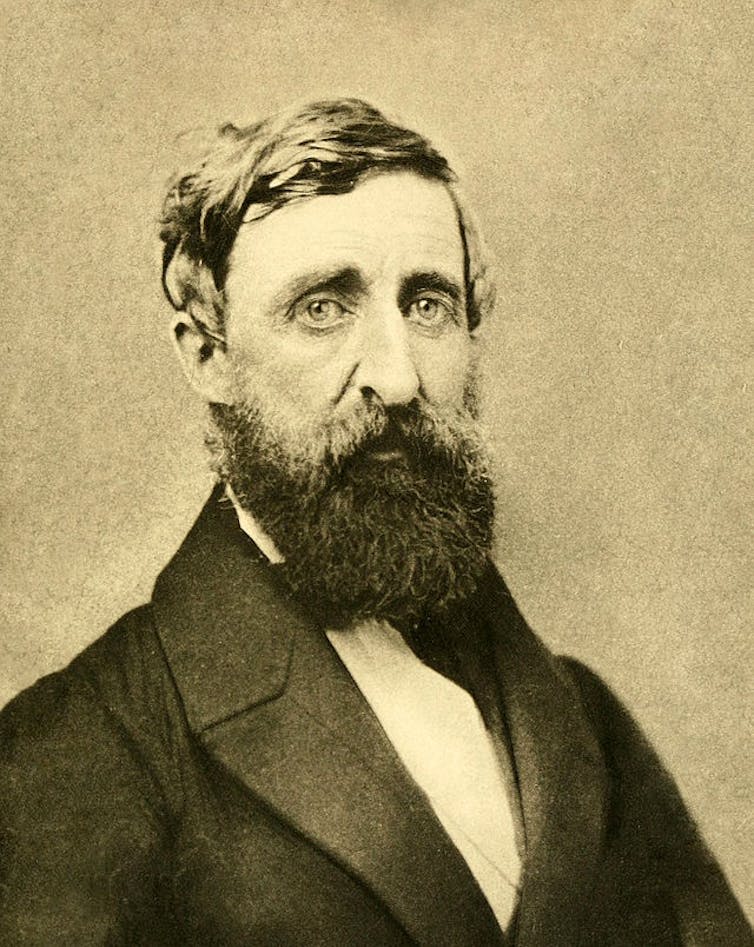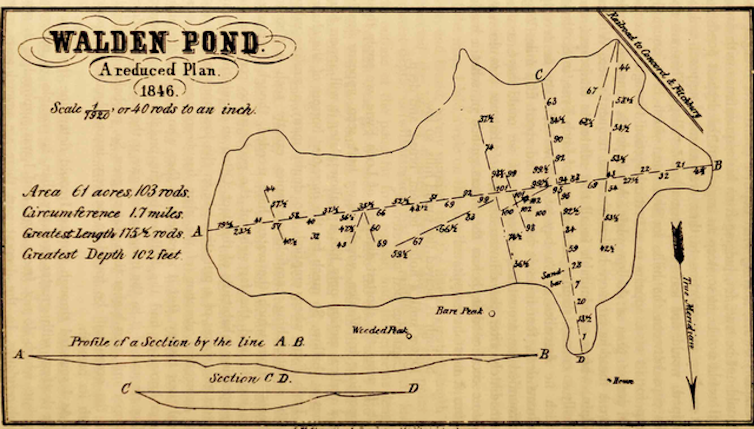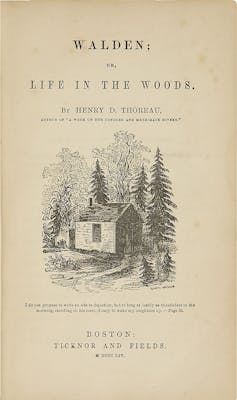Australians have just determined a further “climate election”. What this intended, in essence, was that we experienced to pick amongst two challenging futures. The end result has yielded a new mandate for significant do the job on weather plan.
“Liberal democracies” are going through some of the deepest troubles they have however encountered in their fairly short histories. Historic carbon emissions from the richest countries – particularly the nation of my birth, the United States – heat our Earth, earning everyday living hard for us and for all points. Lots of species have absent extinct. Many peoples have misplaced their homelands. Australia has endured droughts and fires and floods.
In democracies like ours, in elections like the just one we have just witnessed, politicians often body environmental thoughts as a opposition between two values: ecology and economy.
On the a single hand, they tell us, they know that ecological flourishing is important to society. They do their very best to add to sustainability. They nurture green cities and boost environmental reform. On the other hand, they say, we are also reliant on a flourishing economic system. Devoid of the financial method in which we all function and exchange goods, we would not take in or uncover shelter.
They are not improper. The two a flourishing ecology and a healthy financial system are required for habitable human modern society.
But in framing ecology and economic climate as competing values, and all environmental concerns as necessitating trade-offs involving them, modern politicians depart from older, extra holistic strategies of considering about the very well-becoming of our communities. Some of these ways of imagining do not situation financial system and ecology as competitive.
In Australia, of class, some of individuals far more holistic strategies of contemplating involve important Indigenous knowledges about dwelling connected to Country. In addition, there are traditions of dissent from the competitive paradigm among some environmental thinkers in European and American lifestyle.
In my recent reserve Thoreau’s Faith: Walden Woods, Social Justice, and the Politics of Asceticism (2021), about the 19th-century American writer of Walden or, Existence in the Woods (1854), I argued that Henry David Thoreau’s determination to ecology was pushed by a hope for a just economic system. In this, he delivers a handful of important points of resistance to the contemporary vision of competition among ecology and economic climate.
Ecology as a fuller description of social daily life
Thoreau was well-known between his contemporaries for his really like of animals. One particular early biographer was Edward Waldo Emerson, son of the essayist Ralph Waldo Emerson, who had regarded Thoreau when he was a baby. Emerson noticed that Thoreau “felt serious respect for the individuality and character of animals”.
This was genuine to the extent that he manufactured friends with them. Frederick L.H. Willis frequented Thoreau in Walden Woods in July 1847:
Thoreau claimed: “keep pretty continue to and I will show you my family”. Stepping quickly outdoors the cabin doorway, he gave a minimal curious whistle straight away a woodchuck came jogging towards him […] With continue to an additional notice several birds, which includes two crows, flew in direction of him, one of the crows nestling on his shoulder […] He fed them all from his hand […] and then dismissed them by a unique whistling, usually peculiar and low and short, each and every tiny wild issue departing promptly at listening to its specific signal.
Generalising from Thoreau’s love of animals, Edward Emerson also wrote:
For all lifetime he had reverence, and just exactly where the restrictions of aware lifetime commenced and finished he was way too smart, and also hopeful, to say.
“Ecology” is a term that was invented just after Thoreau, a term that points to the relationships among dwelling organisms and the sites they reside. But the strategy it describes – the concept of an interactive complete, the fabric of lifetime by itself – was intuitive to him.
Some strands of Western science have divorced human beings from other dwelling things in a dualistic, anthropocentric worldview. But in Thoreau’s eyesight, human and extra-than-human sociality were integral to a comprehensive description of ecology.

General public domain
Walden Woods is often imagined of as a lonely wilderness. Numerous interpreters of Thoreau’s get the job done have assumed that he went there in an individualist gesture of resistance to social life.
My investigation indicates Walden Woods was an different society. The 20th-century reception of Walden, indebted as it was to cultures of white supremacy, neglected the area’s broader communities and other varieties of sociality.
A concentrate on white histories during the 20th century obscured a key fact about Walden Woods: it had been a web site of human modern society just before Thoreau arrived. In the era just before Thoreau, as he recounts in Walden, a group of previously enslaved people produced their life independently on the shores of Walden Pond, developing a neighborhood that endured for about 4 decades.
Elise Lemire has penned the most in-depth account, Black Walden (2009). She implies that those people people today selected the web page for good reasons that aligned with Thoreau’s: it was at some eliminate from Harmony society, which safeguarded them from harassment to a specified extent, and the forest gave them great entry to the pure means they essential to are living independently.
Just one of their amount, Brister Freeman, cultivated a chestnut orchard, setting up to increase aged in Walden Woods and live on its develop.
These acts of independence took their significance from the unjust economies that have been their contexts. Customers of the Walden community developed admirable life, boasting their liberty inside of a lifestyle that experienced stolen their labour for too extensive.
Study much more:
Why Thoreau, born 200 a long time ago, has never ever been a lot more significant
Financial state as a moral question
As Donald Worster has proven in Nature’s Economic climate: A Historical past of Ecological Strategies (1994), the principles “economy” and “ecology” have a deeply entangled record. Ahead of ecology experienced a identify (the 1st overall look of the phrase was in 1866), it was in some cases called “the economic system of nature”.
Thoreau’s retreat to the woods was his way of signing up for an substitute overall economy, nature’s economy, in reaction to the dysfunctional financial forces – together with slavery – that he saw pressing down on him, his townsmen, and his nation more broadly.

Wikimedia commons
He claims as a great deal in Walden. When Thoreau is perfectly acknowledged as a fully commited naturalist, his most renowned ebook commences with a really lengthy chapter titled “Economy”. You wouldn’t know it from common understandings of Walden, which visualize Thoreau as a crank keeping away from his tasks, but the full guide was determined by distress about the numerous ways that modern day economies ended up negative for persons.
It is not a shock that visitors miss this – the opening chapter is extensive and occasionally uninteresting on goal. It features lists of costs that Stanley Cavell read through as jokes, but are easy to consider also significantly. 1 trainer I know tells learners that they can just skip “Economy” for the second introduction, the less cranky and extra succinct “Where I Lived, and What I Lived For”.
Why did Thoreau care about economic climate?
8 several years before going to Walden Woods, Thoreau graduated from Harvard University in the course of a devastating financial despair. The panic of 1837 was the worst economic disaster the United States experienced nevertheless encountered in its shorter daily life.
The settler colonial growth of the younger nation into the west had made a real estate bubble that burst in May perhaps, and home values collapsed. Factories shut people today ended up cold and hungry there have been riots in the streets.
Due to the fact Thoreau rated 19th out of 41 college students graduating that calendar year, he was a speaker at commencement in June. His assigned topic, all through this economical crash, was “The Industrial Spirit of Present day Times, deemed in its Impact on the Moral Character of a Nation”. As Laura Dassow Partitions writes in her gorgeous biography, Thoreau argued that “commerce destroys moral freedom”. He instructed that the professional spirit sprang from “an unmanly appreciate of wealth”.
In the eight several years subsequent his graduation, Thoreau struggled to make a dwelling. It was this financial context, and his personal working experience of get the job done and credit card debt, that drove him to Walden Pond. He needed to be an author. He experienced a longstanding unfulfilled ambition to compose a guide. He created the cheapest household he could knock jointly, on land that wasn’t his, in purchase to stick to his desire, in spite of the punishing financial circumstances.
Read through additional:
Information to the classics: Walt Whitman’s Leaves of Grass and the complex lifetime of the ‘poet of America’
Overall economy as a type of ecological flourishing
Thoreau imagined that his example could set other men and women no cost. It may well persuade them to resist an unjust financial state and adhere to the promptings of their possess genius. He wrote Walden to display viewers that a tenderer financial system could be far better for us.

The promptings of this 19th-century Yankee offer an opportunity to ponder irrespective of whether and how our personal economic system could be far more ecological. There are resourceful economists and plan makers rethinking strategies to convey ecology and economy again into sync. This kind of an energy will be needed for any habitable long run on our finite Earth.
Thoreau enacted this economic reform in a small way throughout the two years he expended dwelling in Walden Woods. The 1st year, he had a hearth in a fireplace, but in the next year he received a stove to help save wooden. He did this, he said, for economic causes and to shield the forest he cherished. “The up coming winter season I used a modest cooking-stove for economy, considering the fact that I did not possess the forest.”
In this, Thoreau appealed to a radically different vision of economy from the politicians who pit financial system towards ecology. Their “economy” commonly describes a system of financial acquire for men and women who are presently rich. Thoreau’s “economy” was about preserving something that he did not individual, a thing that is worthwhile to all of us, on behalf of all of us. This is what the local weather policy of a new period of time in Australian politics ought to intention at: a holistic, equitable eyesight of financial system and ecology.
For Thoreau, as for us, “economy” was a phrase with numerous meanings. He sought to display that the “commercial spirit” he experienced criticised for its ethical failings at his graduation was not the only doable type of economy. Real economy, according to Thoreau, would lead to ecological and social flourishing among people, and for all beings.
